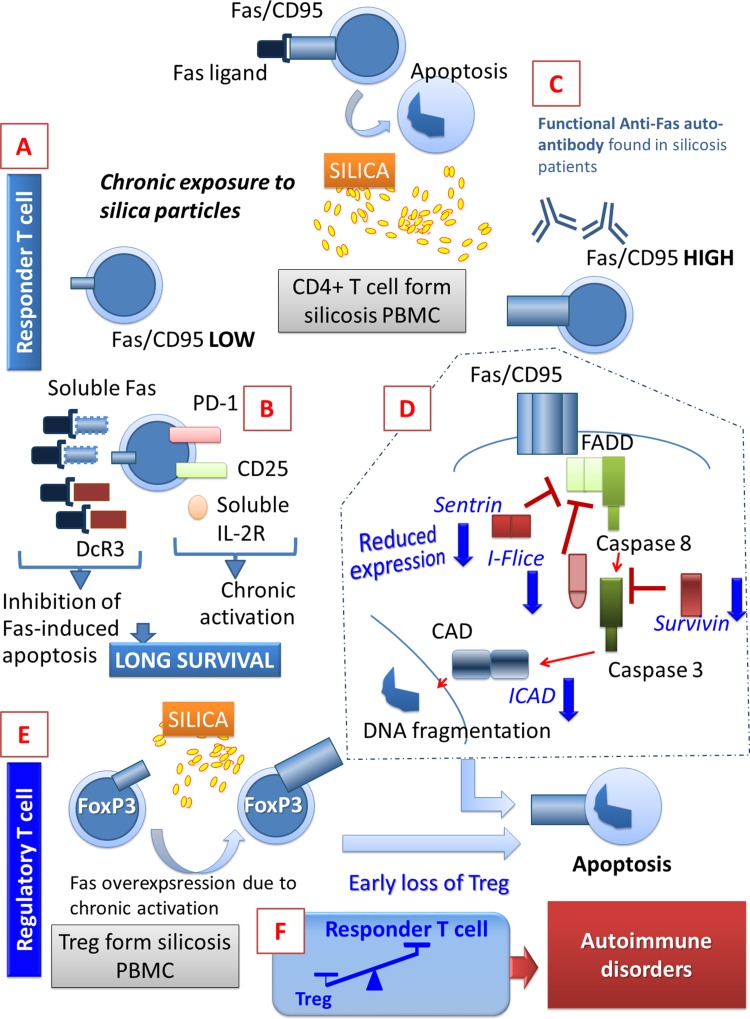Fig. 2.
Schematic presentation of the immunological effects of silica particles. Silica particles induced longer survival and resistance to Fas-mediated apoptosis in responder T cells. Silica also induces accelerated Fas-mediated apoptosis in another fraction of peripheral T cells. In addition, chronically activated regulatory T cells induced accelerated apoptosis. Overall, an unbalance of responder T cells and regulatory T cells was produced. This may be the cause for the occurrence of autoimmune diseases as complications of silicosis. PD-1 programed death 1, DcR3 decoy receptor 3, I-Flice inhibitor of FADD-like interleukin-1-beta-converting enzyme, ICAD inhibitor of caspase-activated DNase, FoxP3 forkhead box P3, Treg regulatory T cell, PBMC peripheral blood mononuclear cells. a Reduced Fas-mediated apoptosis in responder T cells from silicosis, b various activation markers in responder T cells from silicosis, c detection of functional anti-Fas autoantibody in serum from silicosis, d reduction of genes which physiologically inhibit Fas-mediated apoptosis found in PBMC from silicosis, e overexpression of Fas in Treg from silicosis as the activation of Treg, and f unbalance between responder T cell and Treg in silicosis

